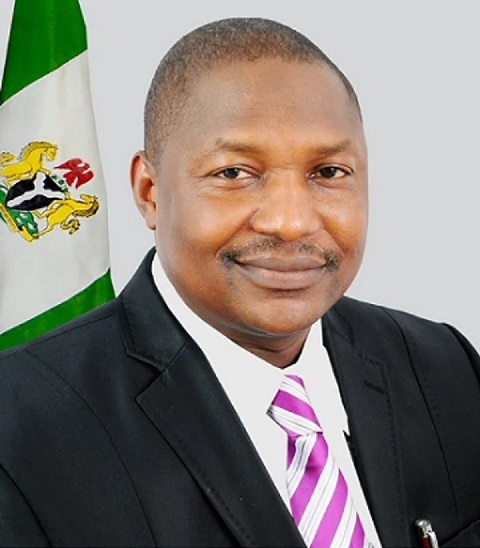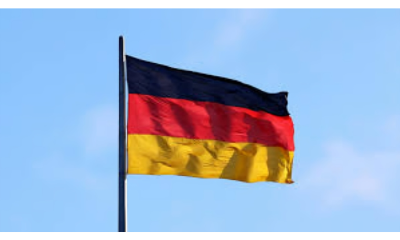COVER
Outrage Greets Fresh PMS Pump Price Increase

…PMS Pump price Increase
By Mathew Dadiya & Tony Obiechina (Abuja) & Dan Amasingha, Minna
Motorists and commuters, yesterday expressed disenchantment and disgust over the further rise of premium motor spirit, popularly known as petrol from N 540 to N617 and N620 by filling stations in Minna.
DAILY ASSET Correspondents that monitored the situation observed that, most motorists were caught unaware by the upward price review.
At the NNPCL mega stations along Western bypass in Minna the product was selling for N617, but some other major marketers are selling for N620 as at the time of filling this report.
A Motorist at one of the stations who simply identified himself as Saidu simply said it is outrageous that at a time that inflation is at an all time high, this government under the quite of soaring up revenue earnings are impoverishing Nigerians.
“How can you just come to power and further inflict pains on Nigerans beyond the nightmare we went through in the hands of the past government.
“If they are trying to boost the economy is it when we are all dead from the draconian economic policies, that lack human face,” he asked angrily.
Surprising a fuel attendant at a popular filling station opposite NECO computer centre in Minna described the incessant increase of fuel prices as bad businesses for filling stations.
He noted that, the purchasing power of most Nigerians has significantly reduced in the last few months noting that, increasing the price by N77 will further worsen the already bad situation for Nigeria.
According to him, the administration of President Ahmed Bola Tinubu is grappling with the economic realities of the country, but it is now apparent that Nigeria is not Lagos.
“We were been told that he will replicate the developmental model he did for Lagos at the centre, but it looks as if Nigeria is more complex than he envisage,” he said.
Transporters on their part has adjusted the transport fares to reflect the new realities as a trip from Minna- Abuja that cost about N4, 500 is now going for N6,000.
Minna – Kontagora which peaked at Four thousand Naira just on Monday has been increased to five thousand five hundred Naira while, the popular Minna – Suleja route has jumped up from two thousand five hundred Naira to Three thousand five hundred Naira.
Commuters and motorists, who spoke on the matter in Abuja, said the policies of the current administration are becoming very harsh on the citizens.
A commuter, Tickson Kusugh, who works with Gilmor Construction Company, said the current administration is leading Nigerians to hell.
A motorist, Uchenna Matthew, who spoke to our correspondent, also criticised the Tinubu administration for taking decisions that have negative impact on the lives of those that voted him to power in less than two months in office.
“The whole rush here is because Mobil has not increased their price. I don’t know the kind of hardship these people are putting us through. They said NNPC has adjusted their price, we are buying here at 540, but they are about to adjust their price.
“We still have the grace to buy at 540; any moment from now it will be increased. This current administration is leading us to hell. Even the animals in the bush are feeling it. The earlier they discharged this government and install the original government that won the election, the better for us,” he said.
Also, a taxi driver, Mohammed Sani, said that Nigerians are suffering due to the increment.
“At NNPC, it is written 617 on their board. They are likely going to increase their price here at Mobil. The situation is very bad; the masses are suffering. The situation is very hard, it is not easy for a poor man to go out not to talk about eating food,” he lamented.
Also yesterday, motorists and commuters in Ibadan have expressed shock over the new pump prices of Premium Motor Spirit (PMS), otherwise known as petrol, announced on Tuesday by the Nigerian National Petroleum Company Limited (NNPCL).
Our correspondent, who moved round the Ibadan metropolis, observed that as the news of the fuel price increase filtered out, some filling stations hurriedly closed shop, with their managers saying that they were awaiting further directives from the authorities.
It was gathered that the few filling stations that were selling the product witnessed long queues of vehicles, while they were selling for between N560 and N650 per litre.
A motorist, Mr Anu Alani, said he woke up yesterday to see that many filling stations were not open for business, and those who were selling increased their price to N650 per litre.
“I was thinking that when I go farther, I would see where I could buy fuel at the normal price, but I didn’t. I don’t know what to do again, as the economic situation is already bad,” Alani said.
Another motorist, Mrs Ayoola Olaoba, said that she would have to find a means of leaving the country, as things did not look like they would get better soon.
“I bought fuel some days ago at N520, only for me to see some of my colleagues saying it has increased to N620. I said just like that! I do not think I can continue with the uncertainty trailing the present economic situation,” she said.
A commercial motorist, Mr Gbenga Oriowo, said that the new price would definitely have an attendant effect on transport fares.
“I am still in the queue now, and there is little or no probability that I will get fuel, and even if I get it, I cannot but increase the transport fare. We will all have to bear the situation,” he said.
Oriowo said that government needed to explain to Nigerians what was going on and the rationale behind the new price regime.
Another motorist, Mrs Funmi Alli, said some major marketers had closed their filling stations, saying that this had contributed to long queues where the fuel was available.
She expressed the fear that the fuel price increase would have a spiral effect on food prices and everything else, which might increase the hardship already being faced by Nigerians.
NNPC Attributes Hike to Market Forces
The Nigeria National Petroleum Corporation Limited (NNPCL) has reacted to the sudden increase of fuel pump prices from N540/liter to N617/liter, saying its merely the market forces at play
Group Chief Executive Officer of NNPCL, Mele Kyari explained yesterday, after meeting with the Vice President, Kashim Shettima at the Presidential Villa Abuja.
According to Kyari, the problem is not a shortage of supply of products, rather forces of demand and supply in the marketing value chain were simply taking effect.
He said importers of fuel products were gaining confidence in the system, noting that prices were bound to go up or down from time to time.
Kyari, who spoke to reporters, said, “I don’t have the details this moment. But we have the marketing wing of our company. They adjust prices depending on the market realities.
“This is really what is happening; this is the meaning of making sure that the market regulates itself so that prices will go up and sometimes they will come down. This is what we have seen and in reality, this is how the market works”.
Asked if there was a shortage of products in the market to have warranted the increase, he responded by saying, “No. there is no supply issue completely. When you go to the market, you buy the product; you come to the market you sell it at the prevailing market prices. Nothing to do with supply shortage, we don’t have supply issues. There is a robust supply. We have over 32 days of supply in the country.
“Yes, what I know is that the market forces will regulate the market. Prices will go down sometimes; sometimes they will go up. But supply will be stable and I am also assuring Nigerians that this is the best way to go forward so that we can adjust prices when market forces come to play.
“I don’t have the details at this moment, but I know that our marketing wing acts just like every other company in this business. I know that several companies have imported petroleum products today. So, many of them are online. I’m sure my colleague would confirm this. Market forces have started to play; people have started having confidence in the market. Private sector people are importing products, but there is no way they can recover their cost if they cannot take market reflective cost”.
Corroborating the NNPCL Chief Executive, Farouk Ahmed, CEO, of the Nigerian Mainstream and Downstream Petroleum Regulatory Authority (NMDPRA) debunked insinuations that the new price adjustment was set by the NNPCL.
“As a regulator, I told you back in May that we are not going to be setting the price. The market will determine itself and as you saw back in early June when prices came out, it was based on the cost of importation plus other logistics of distribution and course the profit margin by the importer. This market is deregulated; it is open to all participants.
“As I mentioned yesterday when I was in Lagos, we have about 56 marketing companies that applied and obtained licenses to import. Out of those, 10 of them have indicated to supply within the third quarter, which is July, August, and September.
“Already, we received some cargo from these marketers: Prudent Energy, AYM Shafa, and Emadeb. Emadeb Cargo is arriving tomorrow. So, this is just an encouragement to see that the market is liberated and everyone is free to import so long as you are working within the framework, especially in terms of quality. But on pricing, as a regulator, we are not going to put a cap on the price because we are not part of those importing. We are not a marketing company; we are just a regulator.
“So, when you say market forces are working what it is that you buy; you consider the price of crude going up. A couple of weeks ago, the price of crude was hovering around $70/barrel.
“Now it’s hovering around $80/barrel. So, the crude price also drives the product price. You know, because the importers are importing, they are basing it on the cost of importation plus the freight and other cost elements in terms of local distribution,” Ahmed said.
IPMAN Blames Dollars’ Cost for New Price
The Independent Petroleum Marketers Association of Nigeria (IPMAN) National President, Chinedu Okoronkwo yesterday explained the sudden hike in the pump price of petroleum products in Nigeria.
Okoronkwo blamed the sudden hike in the pump price of petrol on the cost of dollars.
He explained that petroleum products are imported to Nigeria using dollars, hence the increase.
Speaking on Arise Television, the IPMAN National President advocated the use of Compressed Natural Gas, CNG, as an alternative to petrol.
According to Okoronkwo: “This business is done with dollars, remember the rate of dollars now is in one window and not like we had several others, where CBN will give around N400 while the black market will be around the region of N700 but now there is no more second window.
“Today the dollar is around N800 and in a deregulated regime, what determines the price of anything is the cost. The product is not refined here, everything is imported.
“If we want to achieve something, there are other alternatives we have proffered. The CNG is something this nation needs to seriously look into; so it would be a matter of choice if you want to use gas or petrol.
“The price has really gone up because of the fundamentals in the market which has to do with the dollars.”
The NNPC, on Tuesday, increased the pump price of petrol to about N617 per litre.
This is coming shortly after the petrol price was increased to over N500 per litre following the removal of fuel subsidy.
COVER
DAILY ASSET Appoints Torough, Editor, Names Eze, Deputy

By Laide Akinboade, Abuja
As part of efforts to reposition the newspaper for optimum corporate performance, the management of Asset Newspapers Limited, Publishers of DAILY ASSET, has announced the appointment of David Torough as the Editor of the Abuja-based national daily.
A statement by the management said the appointments were part of the company’s new strategy to further penetrate the various states in the country and raise its readership and patronage.
“DAILY ASSET is widely acceptable across the country and to maintain our leadership position, we need to increase management presence, hence the need to create new Bureau offices in some locations outside Abuja and Lagos,” the statement quoted the Publisher/ Editor-in-Chief, Dr Cletus Akwaya to have said.
In a statement yesterday, Publisher and Editor-in-Chief of the fast-growing daily, Dr. Cletus Akwaya said the appointment was part of the new strategy to properly situate the paper for better productivity.
“DAILY ASSET has a commitment with the Nigerian people. We are determined to weather the storm and give Nigerian readers a Newspaper that satisfies their yearnings and reading pleasure and we can only do that with the right set of professionals,” the statement said.
Akwaya, a former Commissioner of Information from Benue State said the difficult times being faced by Nigerians posed a great challenge to the media as the people deserved credible information with which to make choices.
“We have a bond with the people, to offer credible information at all times in the best tradition of the Nigerian Press and on this scale of objectivity, truth and fairness, we pledge to remain steadfast no matter the challenges,” Akwaya was quoted to have said.
He said the newspaper will maiantin its daily print run and circulation to all states of the federation and urged advertisers to take advantage of the deep penetration of the Daily Asset brand to send their messages.
Torough, the new Editor has had a steady rise in the Newspaper in the last five years.
A graduate of Mass communication of the Benue State University, Makurdi, Torough joined the company in 2022 as Benue State Correspondent. He was spotted for his brilliance and redeployed to Abuja the following year and promoted to Deputy News Editor. He was subswuently named Deputy Editor of the paper, a position he held until the recent appointment.
Torough has attended several journalistic workshops and trainings to properly equip himself for the task ahead.
The statement also said the Management named Eze Okechukwu as Deputy Editor.
Before his elevation as Deputy Editor, Eze has been Deputy Politics Editor and DAILY ASSET Newspaper correspondent covering the Senate, having joined the organization in 2021.
Born on March 10, 1975, Eze holds a Masters Degree in Mass Communication from the Enugu State University of Science and Technology.
Eze began his journalism career with Daily Star, Enugu and later worked with Daily Trust Newspaper, Abuja as sports reporter.
Aside from his journalistic excellence, he has a great deal of passion for sports.
COVER
Insecurity: Northern Govs, Monarchs Seek Six-month Mining Suspension

From Ngutor Dekera, Kaduna and Aliyu Askira, Kano
Northern governors and traditional rulers yesterday called for the suspension of mining activities across the region for six months, blaming illegal mining for worsening insecurity in many states.The resolution was contained in a communiqué issued after a joint meeting of the Northern States Governors’ Forum and the Northern Traditional Rulers’ Council held at the Sir Kashim Ibrahim House, Kaduna.
The meeting, chaired by the Gombe State Governor and NSGF Chairman, Muhammadu Yahaya, had in attendance the 19 northern governors and chairmen of the 19 states’ traditional councils. The Forum expressed concern over the escalating violence in parts of the North, including the killings and abductions recently recorded in Kebbi, Kwara, Kogi, Niger, Sokoto, Jigawa and Kano states, as well as renewed Boko Haram attacks in Borno and Yobe.“The Forum extends its deepest condolences and solidarity to the governments and good people of the affected states,” the communiqué said, noting that the attacks on schoolchildren and other citizens had become “unacceptable tragedies” that required urgent collective action.It commended President Bola Tinubu for what it described as the Federal Government’s “firm response” to recent abductions and insurgency threats, especially the rescue of some abducted pupils.The governors also saluted security agencies for their sacrifices on the frontlines.“We resolved to renew our support for every step taken by the President and Commander-in-Chief to take the fight to insurgents’ enclaves in order to end the criminality,” the Forum stated.A major highlight of the meeting was the North’s renewed push for the establishment of state police, with governors and traditional rulers insisting that decentralised policing had become inevitable.“The Forum reaffirms its wholehearted support and commitment to the establishment of state police,” the communiqué added, urging federal and state lawmakers from the region to “expedite action for its actualisation.”On illegal mining, the governors said criminal mining networks were fuelling violence and providing resources for armed groups.As a corrective measure, they asked Tinubu to direct the Minister of Solid Minerals to impose a six-month suspension of mining activities in order to allow for a full audit and revalidation of licences.“The Forum observed that illegal mining has become a major contributory factor to the security crises in Northern Nigeria. “We strongly recommend a suspension of mining exploration for six months to allow proper audit and to arrest the menace of artisanal illegal mining,” it said.To strengthen the fight against insecurity, the governors also announced the creation of a regional Security Trust Fund.Under the proposed arrangement, each state and its local governments will contribute ₦1bn monthly, to be deducted at source under an agreed framework.They said the fund would help provide sustainable financing for joint operations, intelligence-driven interventions and coordinated security responses across the region.At the end of the meeting, the Forum reaffirmed its commitment to unity and collective responsibility.“Only through unity, peer review and cooperation can we overcome the pressing challenges before us,” it declared.The Forum agreed to reconvene on a date to be announced.Meanwhile, Nigeria’s worsening security crisis took a grim turn on Monday as bandits launched fresh attacks in Kano State, abducting 25 villagers, even as the Federal Government raced to secure the release of more than 300 Catholic school children kidnapped in Niger State.In the early hours of Monday, armed bandits invaded Unguwar Tsamiya—popularly called Dabawa—in Shanono Local Government Area of Kano State, whisking away nine men and two women after shooting into the air and assaulting residents. The attackers also rustled two cows.A resident lamented the community’s helplessness: “We cannot do otherwise; most of us cannot leave because we have nowhere to go. This is our place, our land and everything is here.”The assault came less than 24 hours after a similar attack on Yan Kamaye in Tsanyawa LGA, a community along the volatile Katsina border.In Niger State, National Security Adviser Nuhu Ribadu has assured distraught families of St. Mary’s Co-Education School, Kontagora that the more than 300 students and staff abducted on November 21 will return home “soon.” Ribadu, who led a high-level federal delegation to the school on Monday, said the abductees are safe, though he offered no specifics on their location or the status of rescue operations.According to Daniel Atori, spokesman for the Catholic bishop overseeing the school, the NSA reassured officials: “The children are where they are and will come back safely.”The St. Mary’s attack is part of a worrying resurgence of mass kidnappings reminiscent of the 2014 Chibok schoolgirls’ abduction. Security analysts warn that banditry has evolved into a “structured, profit-seeking industry,” with hundreds of Nigerians abducted in November alone.The Kontagora school abduction occurred the same week 25 girls were kidnapped in Kebbi State—victims who authorities say have since been rescued through “non-kinetic” means. About 50 of the St. Mary’s hostages have also managed to escape.Ribadu’s delegation, which included the Minister of Humanitarian Affairs and the Director-General of the Department of State Services (DSS), reaffirmed the government’s commitment to securing the freedom of all abducted citizens.As communities from Kano to Niger continue to bear the brunt of these violent incursions, the escalating spate of kidnappings underscores the urgent national demand for a more decisive and coordinated security response.COVER
Abacha Loot Probe: Malami Faces EFCC Panel Daily in December

By David Torough, Abuja
The Economic and Financial Crimes Commission (EFCC) said former Attorney‑General of the Federation and Minister of Justice, Abubakar Malami, will face a team of interrogators at its office daily throughout December.A credible source in the EFCC said on Monday that the daily appearance was part of an ongoing investigation into the whereabouts of an alleged 490 million dollars Abacha loot secured through a Mutual Legal Assistance (MLAT) request.
The source said that Malami, who was summoned for interrogation by the EFCC on Saturday, was barred from leaving Nigeria for the next one month.According to the source, one of the conditions for his release on Saturday was that he should report daily to the EFCC Headquarters in Abuja for further interrogation.The source said Malami would have to appear daily at the anti-graft office due to the volume of the investigation and the seriousness of the charges against him.”We seized his passport, it is the normal routine during investigation, but he has to report at the EFCC headquarters in Abuja every day for the next month.”He will be reporting for further investigation throughout December.”He will be reporting every day, starting from Dec. 1st to Dec. 31st.He will appear before the team of investigators for the entire month of December.”He will be reporting to EFCC for investigation for the period because of the volume of the investigation and the seriousness of the charges against him,” the source added.According to the source, a fact sheet on the former minister revealed that Malami had several issues to clarify with the EFCC within the coming weeks.“We have asked him to explain the whereabouts of the $490 million Abacha loot secured through MLAT.“We didn’t say he stole money, but he should account for the loot. This is one of the issues he will clarify to our investigators.”The commission cited the large volume of documents he must review and the need for extensive interviews as reasons for seizing his passport.The source said EFCC would not engage in a war of words but would release its findings after a thorough investigation.Malami, in a statement by his media aide, Mohammed Doka, on Monday in Abuja, however, described the EFCC investigation as a political witch‑hunt.He confirmed he honored an EFCC invitation on Nov. 28, describing the engagement as fruitful and expressing confidence that the probe would vindicate him.Malami described the EFCC’s allegations as baseless, illogical and devoid of substance, insisting they collapse under factual scrutiny.





















Pingback: PMS: Reps Shun Masses, Back Tinubu on N617 Price Hike Daily Asset Online